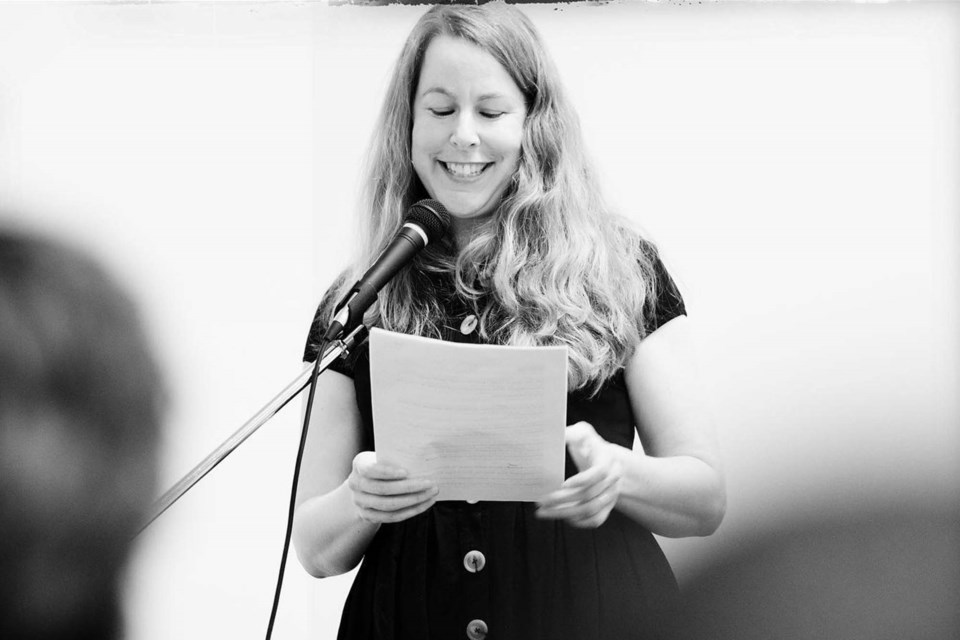DETAILS
Scratching River
by Michelle Porter
184 pages
$22.99
Wilfrid Laurier University Press
A memoir can take many forms and the details can come chronologically or wind a path in and out of time like a Prairie river. Much of this structure naturally depends on the life and the story it describes. It can be told creatively with a non-linear narrative; conversely, it can be formulaic and straightforward, like reading an accountant’s balance sheet. The structure of the writing should relate as much about the subject matter as the words contained therein.
For former St. Albert resident Michelle Porter, her newest work Scratching River lies somewhere between travelogue, diary, history book, nature guide, and the poetic sketches of her life and that of her brother, stitched together with the thread of their Métis ancestry. It is actually multiple stories told from different voices with maps and news clippings peppered in for an added sense of context.
One can neither imagine the work that went into such a project nor fathom the turmoil that predicated it, so Porter's appraisal is astonishing in many ways.
“It was really, to me, a beautiful, beautiful process,” the author described.
The emotional excavation of the process must certainly have proved to challenge that concept of beauty at times. Scratching River found much of its inspiration from the pained life of her older brother, Brendon. Diagnosed with both schizophrenia and autism, he was placed in a group home called The Ranch in southern Alberta. Instead of receiving nurturing care and support, he was horribly abused there.
Métis history also plays a major thread in the narrative, with Porter’s own family history acting as the needle.
The book is a storytelling triumph for the writer who can claim as much of a literary heritage as any other in her bloodline.
Her great-great-grandfather’s brother was Louis Goulet, an adventurer from late 19th-century Manitoba who claimed freighter, scout, interpreter, cowboy, manual labourer, and boxer among his many professions. He was also a well-known storyteller, one whose life was made for stories to be told about it, hence the recent publication of Vanishing Spaces, a modern English translation of Goulet’s own L’espace de Louis Goulet.
After reading the work, Porter considered a “poetic non-fiction response” to it.
“It was just so beautiful and evocative, starting that conversation between the past and the present and the future,” she related.
Scratching River is a beautiful result, too. It takes its title from the historical name of the Gratias River where Goulet was born, though it's now called something else.
The author was living in an apartment in St. Albert in 2003 when she learned Brendon had been hospitalized because of the abuse. Having an itinerant life, the author's memory of that time came flooding back with images of the Prairie sky and the dusty summer heat.
"There's nothing like being away from the Prairie to understanding how much of a Prairie girl I am and how much I actually missed the sky ... I missed the smell of the Prairie just along the rivers. I missed all of that," she offered.
"I would have these memories of being in the car going to see my brother. Sometimes it's like, all of a sudden, this door opened up inside and this 14-year-old climbed out and she sat down beside me, and she said, 'I have a story to tell.' And for me, it was completely unexpected."
Over the course of her life, she says, she has experienced healing from the family trauma, but still that teenaged version of her self was stuck in that moment.
"I learned in the course of writing that book that my brother had moved on ... but that 14-year-old didn't know that. She was frozen in time."
Porter wanted to honour her 14-year-old self by letting "her" tell part of the story. In a sense, she says, is like that teenager's diary.
"The fractured nature of the story is very, very much ... nearer, I think, [to] the experience of trauma. I did tell it very emotionally, partly because I think when you're going back over trauma, it's those little emotional fragments that you remember. And memories can be really disturbed. It's not about me; it is about my brother, but also it becomes about the relationships around him and, that fractured nature of those feelings and piecing it back together. It was an incredible book to write."



